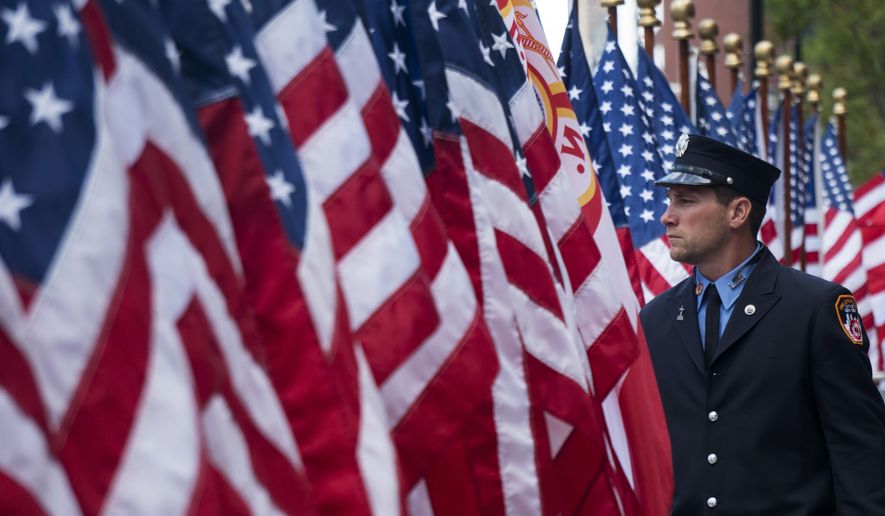Fifteen years since the attacks of Sept. 11, 2001, the face of the terrorism threat is a mixed bag — the homeland may be safer, but terrorist groups are expanding their global footprint and constantly evolving, making the fight an increasingly elusive one, current and former U.S. officials said Sunday.
Shocked by the carnage at the World Trade Center in New York City and the Pentagon, the U.S. stepped up its efforts to gauge threats and beefed up security at airports and ports of entry.
“The bottom line is we’ve been able, as a result of that, to at least prevent another 9/11-type attack on this country,” said Leon Panetta, former defense secretary and CIA director under President Obama, told CNN. “It doesn’t mean that we’ve resolved all of the issues. Terrorism has continued to metastasize.”
Mr. Obama on Sunday noted efforts to “bring justice” to the 9/11 attacks, Osama bin Laden, yet the Islamic State has taken root in Syria and Iraq in the wake of civil war and the U.S. invasion in those countries.
Meanwhile, jihadist groups like Boko Haram are wreaking havoc in West Africa, as France, Belgium and Germany have suffered Islamic State-inspired attacks in their cities.
“We’re always fighting the last war, and then they figure a new one for us,” Rudy Giuliani, the former New York City mayor who helped his city rebound after the 2001 attacks, told ABC’s This Week.
“Having gone after the mafia and the Colombian drug cartels, I can tell you it’s easier to go after a single organization than it is what we’re facing today, which is this Islamic nation which we think of just as ISIS in Syria and Iraq, but it has spread its tentacles all over the world,” Mr. Giuliani added. “They’re in 28 different countries. Al Qaeda never had the capacity to do that.”
Democratic presidential nominee Hillary Clinton criticized her GOP rival, Donald J. Trump, on Sunday for his strident remarks about Muslims, saying it made it harder to rely on alliances within Islam to root out jihadism.
Mr. Trump, though, says it is time to get tougher and smarter about the threat of Islamic-inspired terror, and that the U.S. blundered by failing to secure Iraqi oil after invading in 2003. He said that oil has made the Islamic State rich.
Administration officials on Sunday said they are cutting into the Islamic State’s “caliphate,” and its overall appeal.
“Progress is being made, not only in Iraq and Syria, but beyond,” CIA Director John O. Brennan told CBS’s “Face the Nation.”
The director defended the use of pilotless drones to take out terror cells and their leaders, saying they “exceptionally powerful and capable” tools, despite critics who say the attacks result in too much collateral damage.
Yet Mr. Brennan did say the U.S. needs to be surgical in taking out the cancer of Islamic-inspired jihadism abroad, “without damaging the surrounding tissue.”
Officials acknowledge that cutting into terrorists’ territory and personnel isn’t enough, however, as the fight pivots to cyberspace.
Homeland Security Secretary Jeh Johnson said the U.S. is increasingly on-guard for self-radicalized, or “lone wolf,” actors in the fight against terror.
“It makes for a more complicated homeland security environment,” Mr. Johnson told ABC. “And so it requires a whole of government approach, not just military and law enforcement, homeland security, aviation security, and the like.”




Please read our comment policy before commenting.